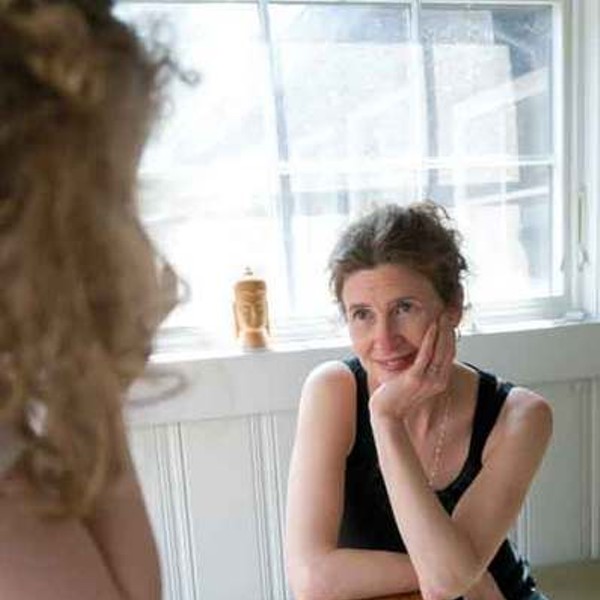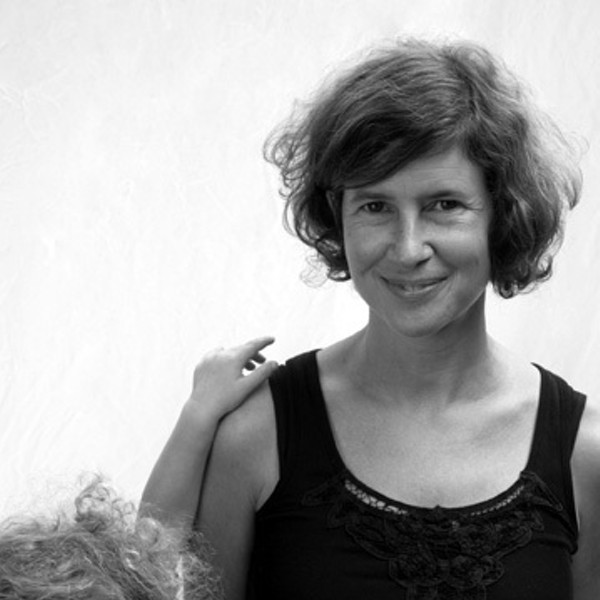Yet, though it is like this, simply, flowers fall amid our longing,
and weeds spring up amid our antipathy.
— Dogen Zenji, Genjokoan
As I worried my way through winter, grumping at this, feeling bleak and insecure about that, I often wondered, God, what kind of mother am I? What happens to Azalea when my dark side threatens? I have tried to take solace in the descriptions of mothers I have read over the years, and the way their adult children view them, appreciating their imperfections, hoping maybe I could get away with the stuff literary moms seem to. I thought a lot about the mother in Toni Morrison’s The Bluest Eye who was pissed at her daughter for throwing up but cleaned it up anyway, roughly placing a scratchy blanket beneath her to soak it up, all the while cursing under her breath. This woman had bigger fish to fry. But when she left the room, her daughter knew she was loved. That’s what stayed with her. Are my maternal superpowers strong enough to provide security even through my self-absorption?
The truth is that I never felt drawn to motherhood, and believed I was way too selfish to look after someone else. Plus, I thought motherhood looked boring. In fact, for many years, as a young writer/waitress living in Park Slope, I felt real disdain for moms—and their kids—looking down my snotty nose at them with their sippy cups and crumbs. Moms and kids were just not very “interesting.”
Luckily, I later sensed that motherhood might lead me somewhere I needed to go, and dove in. I would be lying if I said I am never “stimulation-challenged” by the task, and I can still be pretty solipsistic, but I am also in the thick of this parallel universe of mothers and their kids, and it’s fun! And from a Buddhist perspective it’s always good news when we see ourselves embody someone who once seemed so distant (or abhorrent, better yet). Now I’m one of them, one of those women who says things like, “She’ll have the plain noodles, and can you bring them right away?” And as far as Azalea is concerned, I am totally her mom, a grown-up lurking deep within her internal landscape, cleaning or not cleaning, attending or ignoring, cooking grilled cheese or an “I don’t like this” dinner. Nothing mothers do is neutral. Never ignored. Ah, to be ignored. To have the middle-of-the-night screech “Maaaaaaammmmmmaaaaaa!!!!!!!! I NEED you!!!!!!!!!” be for someone else. For my time, space, and even my insanity to be my own. Those days are over, of course, though that reality is something not even Tolstoy could communicate to the uninitiated. The total life commitment of being a parent is impossible to describe. I guess in that sense it is like what the teachers tell us about spiritual awakening—a state of mind we have to taste for ourselves in order to understand.
Unfortunately, spiritual awakening doesn’t come with the territory of paying attention when we don’t feel like it, from our egos being interrupted. If it did, the world would be filled with realized people (and lots of them would be women, which would be very cool). But I guess if Buddhism teaches anything, it’s that our lives are actually never our own, regardless of whether we choose to procreate—the whole We are all one reality thing. That intimacy is delightful when I’m in the mood, when I’m sunk deep in the middle of a meditation retreat with a quiet mind, listening to the mountain awaken after the long winter freeze—those glimmers of no separation. But when I’m shut down and just want to waste my life on Facebook, I don’t want anyone to even notice, let alone be affected. Can’t I be a separate self, just for a little while? So when the little pat, pat, patter comes a-calling “Mama! Where are you?” sometimes it takes everything I’ve got to return the call, “I’m in the study, honey.” But I have to! So I swivel on my chair and face the person whose little legs, feet, arms, and hands used to be all curled up in my body—a wet knot—eyes closed, filled with the swoosh of my heart, and now, three years later, just wants to keep tabs. On really tough days, I conjure the part of my ego that doesn’t want to read about myself as some withholding old hag in my daughter’s adolescent short stories.
Recently I interviewed the writer Kathleen Norris. She talked about our culture’s ego-inflation, how we are so full of ourselves that we expect the VIP treatment wherever we go. If someone has the audacity to cut us off on the freeway, or make us wait at a ticket counter, or, I would add, demand that we re-adjust the barrette for the 50th time, we go ballistic, as in How dare you? Don’t you know who I am?
We really want to be somebody with important business here on Earth. I know I do.
In the sutras there are descriptions of thousands, even billions, of bodhisattvas—important people gloriously devoted to being nobodies—filling a hall, or a park where the Buddha spoke, every dharma realm bursting with beings. I love to imagine them all sitting next to each other in their topknots, groovy crowns, flowing robes, snacking, gossiping, nodding off, sliding into deep samadhi. And I like to remember that each of these home-leaving, bliss-bestowing monks (and laypeople!) has a mom. And if the moms weren’t so busy, they might gather, too, for as far as the eye can see: mothers in their faded saris, drinking tea, making an effort even in their sleep. Mothers releasing themselves from their own ego-attachments—consciously or not—by serving their kids, and serving the dharma, by letting their children go.
At this point I don’t know which party I would rather attend. Nor do I really know how I am impacting Azalea, though when I pay attention, I can take a good guess: putting myself first, we both feel interrupted. When I don’t feel interrupted, even I don’t know who I am.
Bethany Saltman lives with her family in Phoenicia. She has been a student of John Daido Loori, Roshi, Abbot of Zen Mountain Monastery, since 1998. You can read more of her work at www.bethanysaltman.com.

















